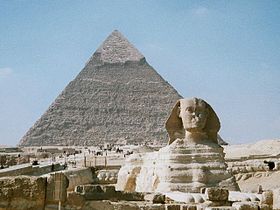Egyptian Army Consolidated its Hegemony Before Presidential Elections
Tuesday, May 6th, 2014 5:03:40 by Abdul Basit Abbasi
The Army is the most powerful institution in Egypt since 1952, the year of the revolution led by Gamal Abdel Nasser. In these six decades, the military has controlled the country with a brief interlude of a year, the government of the Islamist Mohamed Morsi, ousted by a coup last July 3. Since then, the armed forces have increased their share of power in all spheres of public life. The trend may even be accentuated if, as all signs indicate, the former defense minister Abdel Fatah al Sisi overcomes the presidential elections on May 26 and 27.
The Egyptian military plays a pervasive role in the lives of Egyptians. In the capital, there are tanks stationed on the streets, soldiers patrolling with machine guns and the Sisi uniformed posters everywhere. However, one aspect of his presence is more cryptic, invisible, because it has all kinds of companies: bottled water, gasoline stations, resorts, etc.. A true economic empire whose finances are beyond public scrutiny. Your accounts are shrouded in absolute secrecy. Experts estimate that its value could represent between 5% and 35% of GDP, and looks set to increase.
Recently, military companies have made huge profits with succulent public contracts. Between September and December, just in the area of infrastructure, they were awarded six contracts valued at 1,200 million euros. Just over a month ago, building a million new social housing in Egypt with the participation of the army and with the financial assistance of United Arab Emirates, a staunch ally of the new regime was announced. And this could be just the tip of the iceberg, as the interim president in November, Adli Mansur, passed a decree awarding facilitates finger, without public tender.
The expansion of the influence of the uniform is also manifested in the executive branch. The number of retired officers appointed provincial governor or minister has increased compared with Morsi era. While President of the Constitutional Court is acting president and the country has a civil government with most since July, few analysts doubt that it is the army that really calls the shots. However, some political parties represented in the Cabinet nuance this perception.
“The armed forces play an important role in decision making on internal and external security role. However, do not meddle in other areas of government, “said Ziad El Pais to Baha Eddin, who resigned from his post as deputy prime minister in late February. Renowned economist and co-founder of the Social Democratic Party, was considered one of the pigeons of the executive. His proposal was finally defeated, to seek a political solution to the crisis facing the Arab nation through an agreement with the Muslim Brotherhood.
A legal level, the new constitution approved by referendum in January enshrines the privileged status of the Army, a real state within a state. The Basic Law gives the dome of the institution the right to veto the appointment of the Minister of Defense during the next eight years, maintaining military tribunals for civilians and states that the military budget is a state secret. Furthermore, following a decree passed in February, the Supreme Council of the Armed Forces (SCAF) will no longer be chaired by the rais, but the defense minister, who must be a career officer.
The military hegemony could be further strengthened after the presidential elections to be held on 26 and 27 May. Abdel Fatta to Sisi is not only the favorite, but his victory is taken for granted. Its only rival is Hamdin Sabbahi a known opponent of the Mubarak dictatorship, was third in the presidential elections of 2012. The winner of those elections, Mohamed Morsi, is behind bars, and his political movement, the Muslim Brotherhood, outlawed to be considered a “terrorist organization.”
However, the application of the Sisi probably placed the role of the Armed Forces in the center of public debate, making it lose its pedestal. In several recent interviews, Sabbahi has insisted that the military ” should not enter into politics.” Some leaks published in the Egyptian newspaper Al Sisi point that cost him convince some of their coreligionists in the military junta to support its candidacy as a bad memory retain the period when the military junta took power just after the fall of Mubarak. And its controversial management eroded the image of the institution among the population.
” It is not true that either the candidate Al Sisi Army. The institution will be completely neutral,” says Mahmoud Khalaf influential retired general, who recalls that Al Sisi has hung the uniform and must be considered a more civilian.
However, several hypothetical presidential hopefuls have expressed misgivings about the fairness of the soldiers and the state apparatus in general. Among them, Ahmed Shafiq, a former commander and Mubarak’s last prime minister. “The election will be a farce… I have managed everything for him,” Shafiq told a private conversation that was leaked to the press. The fact that the official announcement of the candidacy of the Sisi was issued by the state public television, a privilege not enjoyed by Sabbahi did not bode well for cleaning the elections.
Short URL: https://www.newspakistan.pk/?p=43629

















